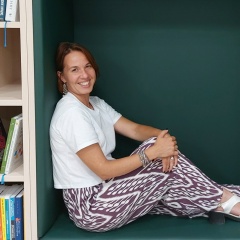Я очень люблю Питер, но каждый раз, когда катаюсь по делам в Москву, мне становится грустно, от того, насколько медленно Питер развивается. От задела имперской столицы, когда Питер был центром инновации, остаётся всё меньше.
Один из вопросов, из-за которого я завидую Москве, это платный паркинг. Вчера снова катались по городу. Везде есть где встать. Приложение позволяет заплатить ровно за столько минут сколько стоял. Оплатил час, но жена раньше вышла из магазина, нажал на кнопку уехать и получил разницу обратно. Про парковку вторым рядом на аварийке и прочие прелести Москвы Лужкова, люди уже забыли.
В Питере же царство автохамов продолжается. Человек купивший машину по прежнему считается человеком первого сорта, которому надо её где-то бесплатно держать и весь город должен ему за это платить свободным местом. Блин, да с какого перепугу?
В исторических кварталах Васильевского и Петроградки, где дворы изначально изолированы, ничто не мешает ввести платный паркинг. Там любители халявы не смогут заставить дворы своими тазиками. При этом именно исторические улицы узкие и наиболее страдают от парковки вторым рядом на аварийке, запаркованных пешеходных переходов и прочего.
Я понимаю, что в среднем Питер очень левый город. Тут гораздо больше любителей халявы. То, что жить в доме с историческим фасадом должно быть дороже, чем в хрущевке, для многих нонсенс. То что эти дома смогли построить такими красивыми, потому что у жильцов царского времени было больше расходов на их содержание, как-то ускользает. Почему город, за счёт жителей других домов должен ремонтировать исторические дома, жители которых удавятся из-за копейки, но не хотят переехать, для меня тоже загадка.
И главное в этом, что если эту систему не менять, то центр потеряет свою уникальность. Да, изменения неизбежно ударят по части людей, но большой город это всегда сложные решения. В Москве эти решения принимают и город развивается. В Питере из сложных и полезных решений, разве что ЗСД.
Один из вопросов, из-за которого я завидую Москве, это платный паркинг. Вчера снова катались по городу. Везде есть где встать. Приложение позволяет заплатить ровно за столько минут сколько стоял. Оплатил час, но жена раньше вышла из магазина, нажал на кнопку уехать и получил разницу обратно. Про парковку вторым рядом на аварийке и прочие прелести Москвы Лужкова, люди уже забыли.
В Питере же царство автохамов продолжается. Человек купивший машину по прежнему считается человеком первого сорта, которому надо её где-то бесплатно держать и весь город должен ему за это платить свободным местом. Блин, да с какого перепугу?
В исторических кварталах Васильевского и Петроградки, где дворы изначально изолированы, ничто не мешает ввести платный паркинг. Там любители халявы не смогут заставить дворы своими тазиками. При этом именно исторические улицы узкие и наиболее страдают от парковки вторым рядом на аварийке, запаркованных пешеходных переходов и прочего.
Я понимаю, что в среднем Питер очень левый город. Тут гораздо больше любителей халявы. То, что жить в доме с историческим фасадом должно быть дороже, чем в хрущевке, для многих нонсенс. То что эти дома смогли построить такими красивыми, потому что у жильцов царского времени было больше расходов на их содержание, как-то ускользает. Почему город, за счёт жителей других домов должен ремонтировать исторические дома, жители которых удавятся из-за копейки, но не хотят переехать, для меня тоже загадка.
И главное в этом, что если эту систему не менять, то центр потеряет свою уникальность. Да, изменения неизбежно ударят по части людей, но большой город это всегда сложные решения. В Москве эти решения принимают и город развивается. В Питере из сложных и полезных решений, разве что ЗСД.
I really love Peter, but every time I go to Moscow for business, I feel sad about how slowly Peter develops. From the backlog of the imperial capital, when Peter was the center of innovation, there is less and less.
One of the issues that I envy Moscow for is paid parking. Yesterday we rode around the city again. Everywhere there is where to get up. The application allows you to pay exactly for as many minutes as stood. I paid an hour, but my wife left the store earlier, pressed the button to leave and got the difference back. People have already forgotten about parking in the second row in the emergency gates and other delights of Moscow Luzhkov.
In St. Petersburg, the realm of auto-hums continues. The person who bought the car is still considered a first-class person who needs to keep it somewhere for free and the whole city must pay him free space for this. Damn, but with what fright?
In the historical quarters of Vasilyevsky and Petrogradka, where the yards are initially isolated, nothing prevents the introduction of paid parking. There lovers of freebies will not be able to force the yards with their basins. At the same time, it is historical streets that are narrow and suffer most from second-row parking at the emergency gates, parked pedestrian crossings and other things.
I understand that, on average, Peter is a very left city. There are much more freebie lovers. The fact that living in a house with a historical facade should be more expensive than in Khrushchev is nonsense for many. The fact that these houses were able to build so beautiful, because the residents of the tsarist era had more expenses for their maintenance, somehow escapes. Why the city, at the expense of residents of other houses should repair historic houses, whose inhabitants are strangled because of a penny, but do not want to move, is also a mystery to me.
And the main thing in this is that if this system is not changed, the center will lose its uniqueness. Yes, changes will inevitably hit people, but a big city is always a difficult decision. In Moscow, these decisions are made and the city is developing. In St. Petersburg from complex and useful solutions, except perhaps WHSD.
One of the issues that I envy Moscow for is paid parking. Yesterday we rode around the city again. Everywhere there is where to get up. The application allows you to pay exactly for as many minutes as stood. I paid an hour, but my wife left the store earlier, pressed the button to leave and got the difference back. People have already forgotten about parking in the second row in the emergency gates and other delights of Moscow Luzhkov.
In St. Petersburg, the realm of auto-hums continues. The person who bought the car is still considered a first-class person who needs to keep it somewhere for free and the whole city must pay him free space for this. Damn, but with what fright?
In the historical quarters of Vasilyevsky and Petrogradka, where the yards are initially isolated, nothing prevents the introduction of paid parking. There lovers of freebies will not be able to force the yards with their basins. At the same time, it is historical streets that are narrow and suffer most from second-row parking at the emergency gates, parked pedestrian crossings and other things.
I understand that, on average, Peter is a very left city. There are much more freebie lovers. The fact that living in a house with a historical facade should be more expensive than in Khrushchev is nonsense for many. The fact that these houses were able to build so beautiful, because the residents of the tsarist era had more expenses for their maintenance, somehow escapes. Why the city, at the expense of residents of other houses should repair historic houses, whose inhabitants are strangled because of a penny, but do not want to move, is also a mystery to me.
And the main thing in this is that if this system is not changed, the center will lose its uniqueness. Yes, changes will inevitably hit people, but a big city is always a difficult decision. In Moscow, these decisions are made and the city is developing. In St. Petersburg from complex and useful solutions, except perhaps WHSD.
У записи 3 лайков,
0 репостов,
448 просмотров.
0 репостов,
448 просмотров.
Эту запись оставил(а) на своей стене Alexander Shishenin
























